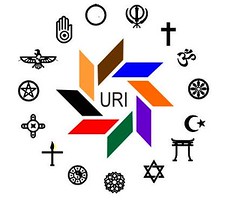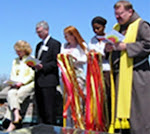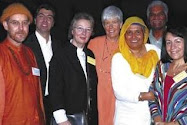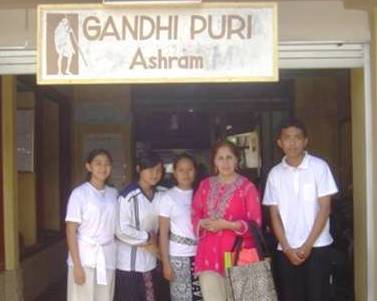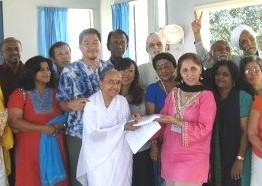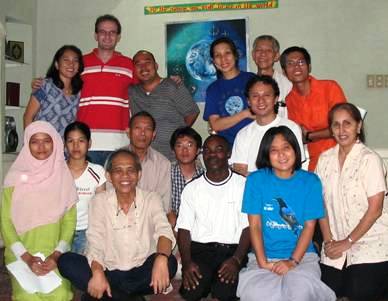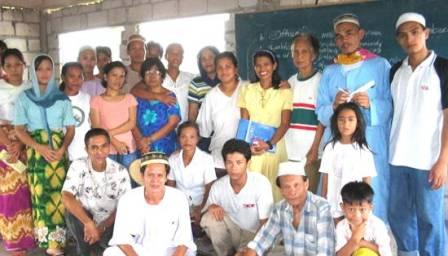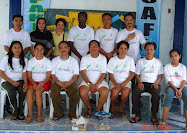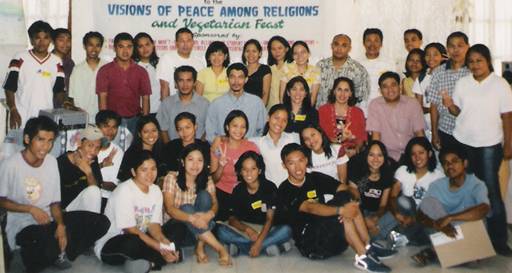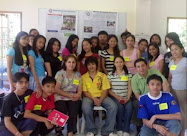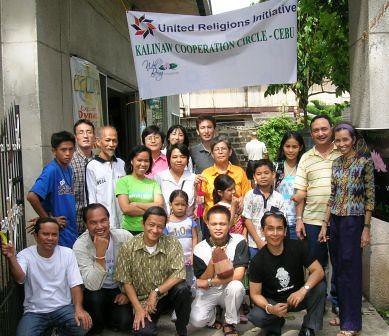The event was organized with the aim of: enhancing the knowledge, and pedagogical skills of educators in Philippine schools, especially from the Mindanao region, in educating for understanding, respect and harmony among communities of different faiths in the Philippines; strengthening the educational and leadership roles of educators in the Philippines in building a culture of peace and non-violence in their school communities: and fostering cooperation and linkages among educators, administrators and schools in Manila and other regions with colleagues from Mindanao, especially from conflict zones, thereby enhancing interfaith understanding and acceptance.
+28th+-+Miriam+CPE+Griffith+workshop+031.jpg) The program consisted of interfaith prayers for the opening and talks from a panel of interfaith speakers showing perspectives of diverse faiths on key issues and themes related to building a culture of peace in the Philippines. Dr. Shakun Vaswani and Ms. Marites Africa of The Peacemakers’ Circle shared from the Hindu and Christian perspective respectively. Sharing from Islam was Ms. Mucha Shim-Arquiza of the Lumah Ma Dilaut Center, from the Buddhist perspective was Prof. Toh Swee-Hin of the Griffith Multifaith Center, and Ms. Beting Colma of the Manobo tribe, speaking for an indigenous spiritual tradition of Mindanao.
The program consisted of interfaith prayers for the opening and talks from a panel of interfaith speakers showing perspectives of diverse faiths on key issues and themes related to building a culture of peace in the Philippines. Dr. Shakun Vaswani and Ms. Marites Africa of The Peacemakers’ Circle shared from the Hindu and Christian perspective respectively. Sharing from Islam was Ms. Mucha Shim-Arquiza of the Lumah Ma Dilaut Center, from the Buddhist perspective was Prof. Toh Swee-Hin of the Griffith Multifaith Center, and Ms. Beting Colma of the Manobo tribe, speaking for an indigenous spiritual tradition of Mindanao.Case studies and best practices of multifaith and interfaith dialogue initiatives were also presented by representatives from organizing educational institutions and NGOs. Dr. Loreta Castro and Ms. Jasmine Galace talked about the Miriam College Center for Peace Education, Fr. Sebastiano D’ambra represented Silsilah Dialogue Movement in Mindanao, and Prof. Toh and Ms. shared the Griffith University Multifaith Center). Ms. Africa represented The Peacemakers’ Circle with a powerpoint presentation of its beginnings, various programs and current projects. The afternoon sessions consisted of a lectures on pedagogical principles and a workshop on the integration of interfaith perspectives in educational programs.
